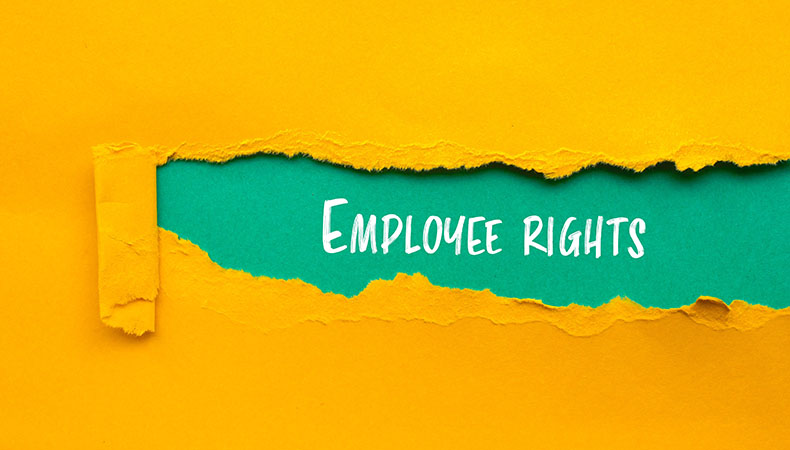How will your company react to the Employment Rights Bill?
The Employment Rights Bill (ERB) is a significant piece of legislation that could impact the workplace dynamic in various ways, from inclusivity, rewards and benefits to overall employee rights.
In the CIPD's Labour Market Outlook winter 2024/25 survey of more than 2,000 employers, almost 80% expected the planned measures to increase employment costs, adding to pressures already created by rises to National Insurance, the National Living Wage and business rates.
Among those same companies, the most anticipated solutions are redundancies, increased automation, reductions in training spend, cuts in working hours and increases in temporary staff.
The specific details of the bill will depend on jurisdiction and legislative status, but certain themes look likely to impact across the board and here we lay them out.
1. Inclusivity
Provisions within the Employment Rights Bill could be geared towards enhancing inclusivity:
- Stronger anti-discrimination protection – there is potential for expanding protections against discrimination based on race, gender, age, disability, sexual orientation, religion, or other protected characteristics.
Employers will need to ensure they comply with any new legal requirements for non-discriminatory hiring, promotion, and compensation practices.
- Flexibility for diverse workforces - the bill could also introduce requirements for reasonable accommodations for employees with disabilities, caregivers, or those with specific religious or cultural needs.
Employers may need to modify to the workplace environment or work schedules to support inclusivity.
- Data collection and reporting - employers may need to collect and report data related to diversity, inclusion, and pay equity.
Employers should be prepared to manage and report this data accurately to avoid penalties or reputational damage. Employers also need to think how they can encourage employees to provide them with this data.
2. Reward and benefits
Changes in the Employment Rights Bill could impact how employers structure reward and benefits packages:
- Pay Transparency and equity - the bill could mandate greater transparency in pay structures, requiring employers to disclose salary ranges, address pay gaps, and ensure that employees are paid equitably for equal work.
Employers will need to ensure their reward systems are aligned with these new standards to avoid potential claims of wage discrimination.
- Enhanced benefits - the bill could mandate improved benefits such as paid sick leave, family leave, or mental health support.
Employers may need to adjust their benefits to remain compliant, including making sure that benefits are equally accessible to all employees, regardless of contract type (full-time, part-time).
- Minimum wage and income protection - adjustments to the minimum wage or income protection provisions are likely.
Employers may need to raise wages or enhance benefits to meet these new requirements, which could impact overall compensation strategies and impact pay compression throughout other pay ranges.
3. Employer responsibilities and compliance
Employers cannot turn a blind eye to compliance in several key areas:
- Policy updates and training - internal policies may need an overhaul, including on discrimination, harassment, and compensation.
Employers may need to support managers and train staff to help them understand their new rights.
- Legal risks and employee claims - the bill could enhance employees’ legal rights, making it easier for them to pursue claims related to discrimination, unfair treatment or unequal pay.
Employers should work towards a fair and transparent process for handling employee complaints.
- Changes to contract terms - The bill might require employers to modify employment contracts, particularly if there are changes to job security provisions, leave entitlements, or rights around job termination.
Employers should get ahead of this to ensure contracts are up-to-date and compliant.
- Monitoring and reporting obligations – there may be a greater onus on companies to monitor and report on workplace diversity, compensation equity, and employee welfare.
Employers need proper systems in place to track and report this.
Employers beware
- Be aware – stay informed and be proactive in keeping up to date with changes in legislation to avoid inadvertently violating employee rights and causing reputational damage.
- Sense check against discrimination - Despite best intentions, employers might inadvertently carry on with practices that are discriminatory or unfair. Audit current practices for equity and fairness.
- Think legal compliance - Non-compliance could result in fines or legal action, so be prepared to meet the bill’s new legal obligations and have the necessary resources in place to manage these changes. If this isn’t the case, seek advice.
- Employee engagement and morale - While the bill is geared towards creating positive change, poorly implemented changes could negatively impact morale. Communicate transparently about any new measures.
The Employment Rights Bill could create significant change in the workplace, with an emphasis on inclusivity, fair pay, and better benefits for employees.
Employers and HR need to stay informed, and be prepared to update policies, improve levels of transparency and invest in any training and education to meet any new legal standards.
Supplied by REBA Associate Member, Innecto Reward Consulting
The UK’s largest independent pay and reward consultancy, transforming pay into performance.








